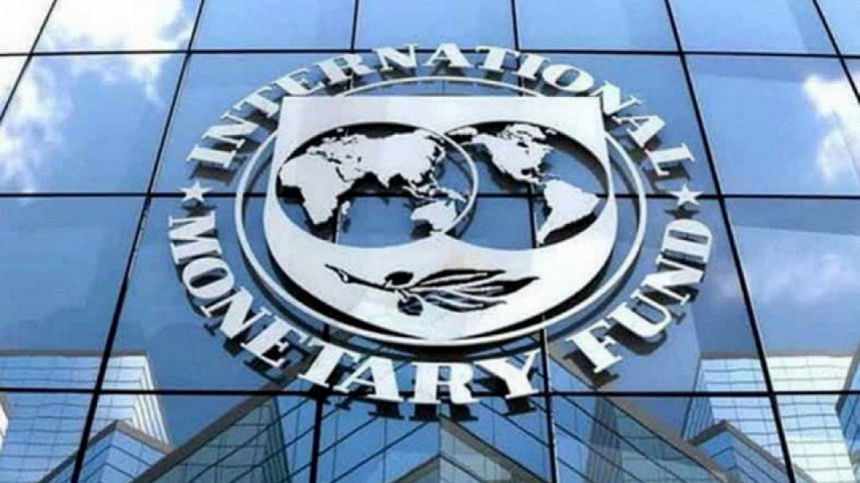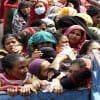IMF Staff Mission: Concern raised over inflation, reserves, bad loans

The International Monetary Fund staff mission yesterday raised four burning issues in their meetings with the Bangladesh Bank and the finance ministry: foreign currency reserves, inflation, banking sector and revenue collection.
During the meetings, the IMF mission, led by its chief Rahul Anand, presented reports in which they highlighted the government's progress under the $4.7 billion loan programme and also the country's recent economic development, The Daily Star has learnt from officials informed about the development.
At the meetings, the IMF team wanted to know the reasons behind Bangladesh's high inflation rate when many countries around the world managed to bring down their price levels.
In the first three months of the fiscal year, inflation averaged 9.75 percent, according to data from the Bangladesh Bureau of Statistics (BBS).
The finance ministry officials, led by Finance Secretary Khairuzzaman Mozumder, pinned the blame for prolonged high inflation on the steep currency devaluation, import controls and high commodity prices in the international market.
But to tame inflation, the government has introduced market-based interest rates and raised the policy rate in July.
In response, the IMF officials said many countries have raised their interest rates much earlier while calling for further rate rises.
Coincidentally, a few hours after the meeting with the IMF mission, the central bank hiked the policy rate by 75 basis points to 7.25 percent.
The IMF mission also wanted to know the reasons behind Bangladesh's failure to keep the stipulated minimum net international reserves of $24.46 billion on June 30, a mandatory requirement to get the second tranche of the loan authorised.
In response, the finance ministry officials said the reserves had depleted due to fulfilling payment obligations for essential imports as well as for loan servicing.
Bangladesh Bank Governor Abdur Rouf Talukder also gave similar explanations for failing to keep $24.46 billion of net international reserves in his separate meeting with the IMF mission.
"We informed them that Bangladesh has successfully brought down the current account balance deficit, but there was a big deficit in the financial account, which is the major reason for the decline in reserves," BB Spokesman Md Mezbaul Haque told journalists after the meeting at the central bank headquarters in Motijheel.
The central bank has initiated reform measures as per the IMF's timeline.
Both the finance ministry and the BB discussed banking sector reforms in their meetings with the IMF mission.
All banking sector reforms have been fulfilled, they said.
However, the IMF raised concerns over Bangladesh's high rate of default loans.
At the end of June, the banking sector's defaulted loans hit a record Tk 156,039 crore, which is 10.11 percent of total credits disbursed.
The IMF also asked about the government's failure to collect a minimum of Tk 345,630 crore in tax in fiscal 2022-23. This was one of the six quantitative targets set for the first half of 2023 by the IMF for the authorisation of the second instalment.
In response, finance ministry officials said that while revenue collection fell short of IMF's floor it was within a touching distance.
This issue will be discussed at length when the IMF mission sits down with the National Board of Revenue today.
At the meeting, the finance ministry officials also suggested reworking some of the targets for December and June next year that were agreed with the IMF staff mission last year before the $4.7 billion loan was approved by the lender's board in January.
One of the targets that has been proposed for reassessment is the minimum net international reserves. Bangladesh needs to have at least $26.81 billion in net international reserves by the end of the year, as per the conditions agreed.
This seems unlikely as of now.
As of September 26, gross foreign reserves stood at $21.15 billion.
And Zahid Hussain, a former lead economist of the WB's Dhaka office, yesterday said the net reserves might be in the neighbourhood of $18 billion.
The IMF mission will meet with different government bodies, including the power, energy and mineral resources ministry, the Economic Relations Division and BBS during their tour.

 For all latest news, follow The Daily Star's Google News channel.
For all latest news, follow The Daily Star's Google News channel. 








Comments